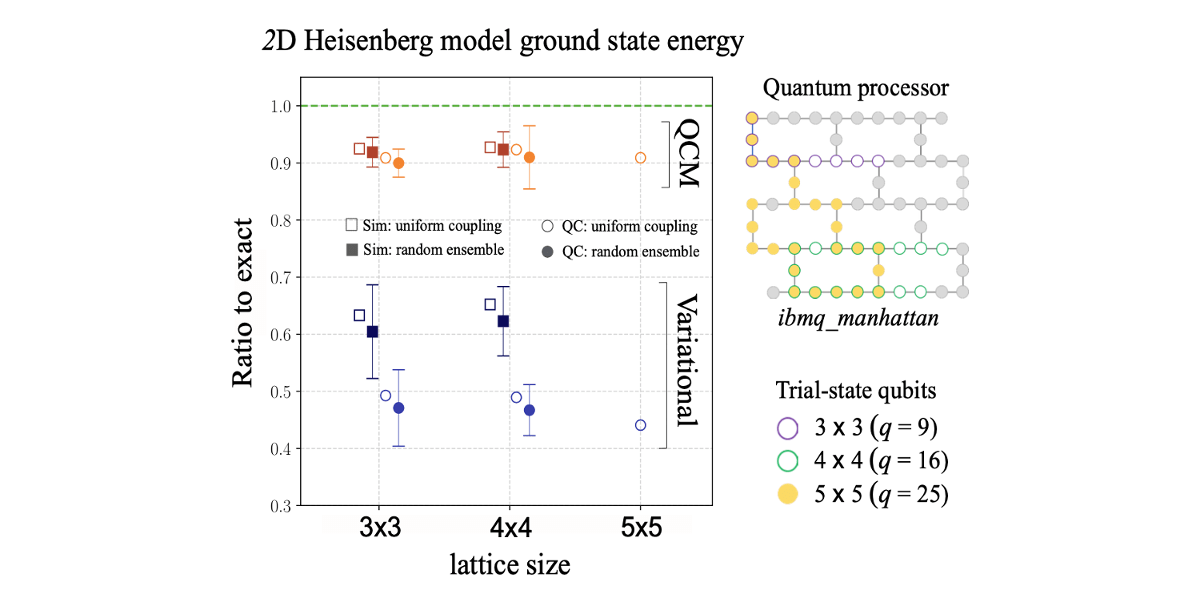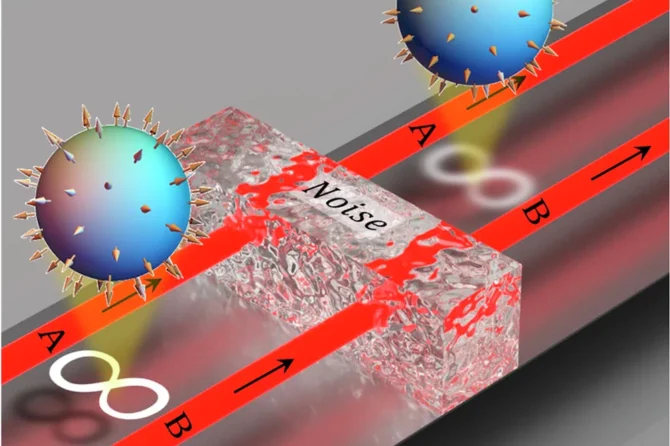The variational principle of quantum mechanics is the backbone of hybrid quantum computing for a range of applications. However, as the problem size grows, quantum logic errors and the effect of barren plateaus overwhelm the quality of the results.
There is now a clear focus on strategies that require fewer quantum circuit steps and are robust to device errors.
Researchers at University of Melbourne have presented an approach in which problem complexity is transferred to dynamic quantities computed on the quantum processor – Hamiltonian moments, ⟨Hn⟩.
From these quantum computed moments, an estimate of the ground-state energy can be obtained using the infimum theorem from Lanczos cumulant expansions which manifestly corrects the associated variational calculation. With higher order effects in Hilbert space generated via the moments, the burden on the trial-state quantum circuit depth is eased.
The method has been introduced and demonstrated on 2D quantum magnetism models on lattices up to 5×5 (25 qubits) implemented on IBM Quantum superconducting qubit devices. Moments were quantum computed to fourth order with respect to a parameterised antiferromagnetic trial-state.
A comprehensive comparison with benchmark variational calculations was performed, including over an ensemble of random coupling instances. The results showed that the infimum estimate consistently outperformed the benchmark variational approach for the same trial-state.
These initial investigations suggest that the quantum computed moments approach has a high degree of stability against trial-state variation, quantum gate errors and shot noise, all of which bodes well for further investigation and applications of the approach.
The paper can be read there.
The post Quantum computed moments correction to variational estimates appeared first on Swiss Quantum Hub.




